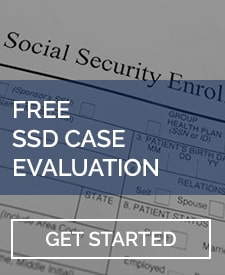You may have heard the term PTSD in reference to a veteran. But can people who are not veterans suffer from the medical condition of PTSD as well? PTSD, or post-traumatic stress disorder, is a condition that can occur after witnessing a traumatic or shocking event. This event may cause you to be fearful for your life or the lives of others. Most people have heard this term as it refers to veterans, but this condition can affect anyone suffering from a traumatic experience. The symptoms of this condition, as with other medical conditions, can range from mild to severe. IF you are suffering from severe symptoms of PTSD, you are likely not able to work and thus should apply for disability benefits.
Symptoms of PTSD may cause significant barriers to social or work situations. There are four groups of symptoms for the medical condition of PTSD. The first group is intrusive memories. These symptoms may include recurrent memories of the traumatic event; nightmares or flashbacks. The second group of symptoms includes avoidance characterized by avoiding thinking about the traumatic event or even avoiding certain places that remind you of the traumatic event. The third group is negative thinking. These symptoms include negative feelings about yourself, lack of interest, socially withdrawal, feelings of hopelessness or worthlessness. And the fourth group revolves around changes in emotional reactions. These symptoms include irritability, anger, difficulty concentrating, insomnia, vigilance, or easily startled. Your symptoms of PTSD may intensify over time.
If any of these symptoms sound like something you are experiencing, you may be entitled to disability benefits. Social Security recently added a new evaluation process to disability claims from PTSD.
Social Security will evaluate your condition using Listing 12.15 for trauma and stress-related disorders. To meet this listing, you must satisfy the A and B criteria or the A and C criteria.
The A criteria require medical documentation of the following symptoms:
- exposure to a traumatic event;
- flashbacks, intrusive thoughts;
- avoidance; and
- disturbance of mood and behavior; and
- startle response and sleep disturbance.
The B criteria of Listing 12.15 requires a showing of an extreme limitation in one area or marked limitation in two of the following areas:
- Understanding, remembering or applying information;
- Interacting with others;
- Concentration, persistence and pace; and
- Adaption.
The C criteria require a medically documented history of the disorder for a period of at least 2 years with evidence of both:
- medical treatment that is ongoing and diminishes the symptoms and signs of the mental disorder; and
- minimal capacity to adjust to changes in your environment or demands of daily life.
If you believe your medical condition of PTSD falls under Listing 12.15, you should consider applying for disability benefits. At the LaBovick Law Group, we provide a free initial consultation. Meaning, we will talk with you about your situation and explain whether you meet the requirements of the program. Call us today, you have nothing to lose and everything to gain.






